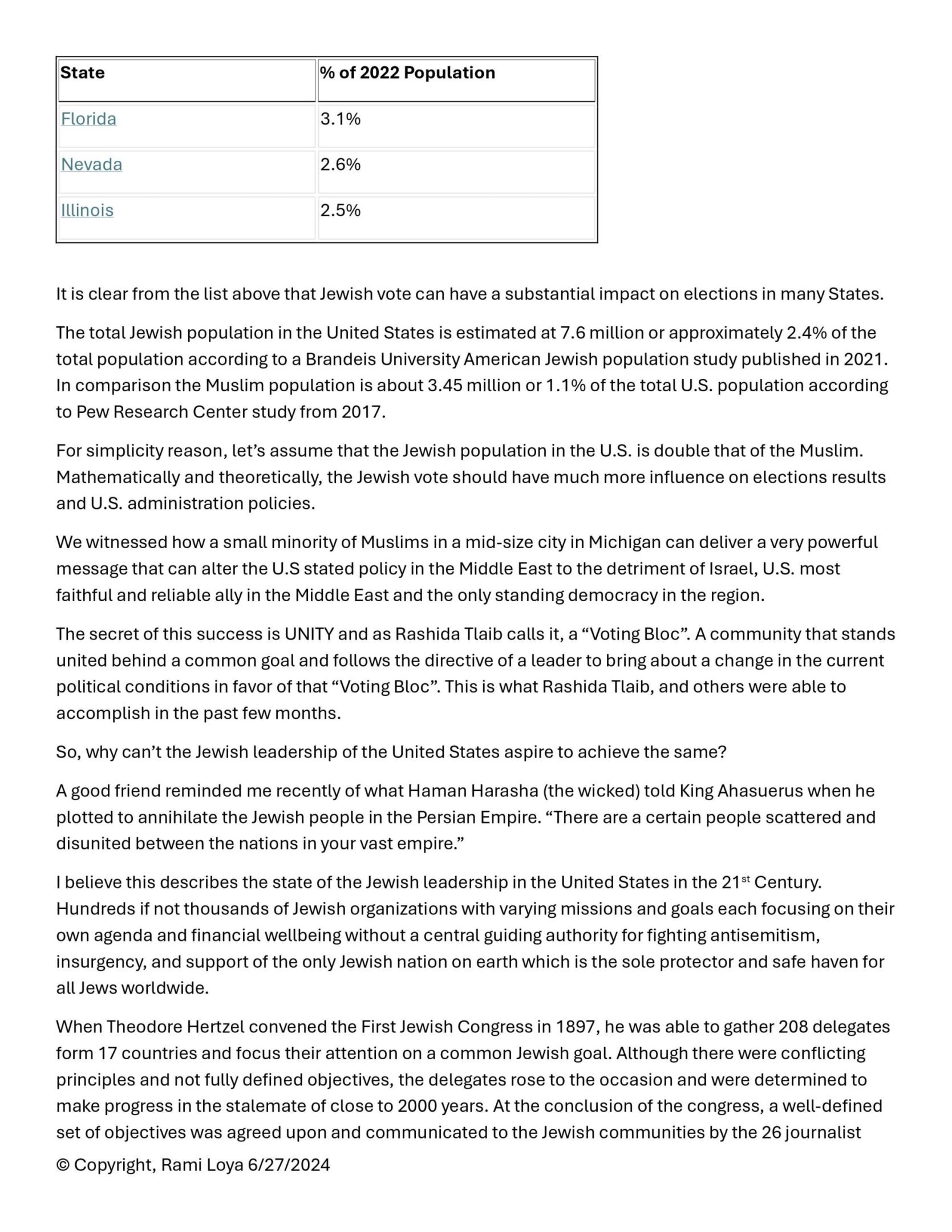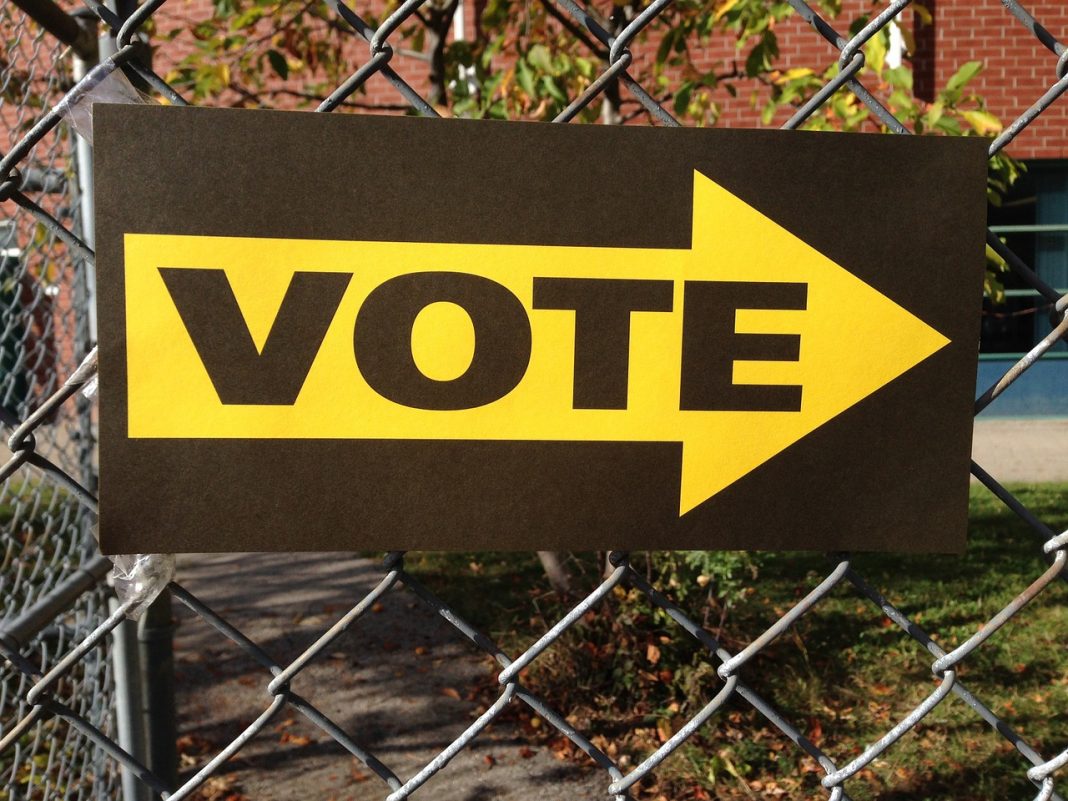|
Getting your Trinity Audio player ready...
|
Time to Leverage the Jewish Vote to Fight Anti-Semitism and Support Israel
By: Rami Loya
When U.S. Representative Rashida Tlaib called on the Muslim constituents of her district to vote “Uncommitted” in the Michigan Democratic primary elections on February 27,2024, her call was answered by over 100,000 voters representing over 13% of the total primary vote. This unified show of support targeted against President Biden created an unfavorable change in the Biden administration policy towards Israel.


The Detroit Free Press reported on February 19, 2024, what Tlaib said, speaking outside the Ford Community and Performing Arts Center in Dearborn, Michigan as early voting began.
“It is important as you all know not only to march against the genocide, not only make sure we’re calling our members of Congress … it is also important to create a voting bloc, something that is a bullhorn to say enough is enough.”
Creating a “Voting Bloc” is the key to leveraging votes to elect public officials and influence the results of local and national elections. Over 13% of the total vote when there is only one candidate is very significant when some elections are decided by 0.1% margin or less.
Arab American population of Dearborn, MI has the highest percentage of Arab Americans among all cities in the U.S. with 55% of its 110,000 population of Middle Eastern descent.
In contrast, the Jewish population of NYC stand at about 1.6 million which is about 18.4% of the total city population.
Here are the percentage of Jewish Population in some of the States according to Jewish Population in the United States by State 2024- Jewish Virtual Library
It is clear from the list above that Jewish vote can have a substantial impact on elections in many States.
The total Jewish population in the United States is estimated at 7.6 million or approximately 2.4% of the total population according to a Brandeis University American Jewish population study published in 2021.
In comparison the Muslim population is about 3.45 million or 1.1% of the total U.S. population according to Pew Research Center study from 2017.
For simplicity reason, let’s assume that the Jewish population in the U.S. is double that of the Muslim.
Mathematically and theoretically, the Jewish vote should have much more influence on elections results and U.S. administration policies.
We witnessed how a small minority of Muslims in a mid-size city in Michigan can deliver a very powerful
message that can alter the U.S stated policy in the Middle East to the detriment of Israel, U.S. most faithful and reliable ally in the Middle East and the only standing democracy in the region.
The secret of this success is UNITY and as Rashida Tlaib calls it, a “Voting Bloc”. A community that stands united behind a common goal and follows the directive of a leader to bring about a change in the current political conditions in favor of that “Voting Bloc”. This is what Rashida Tlaib, and others were able to accomplish in the past few months.
So, why can’t the Jewish leadership of the United States aspire to achieve the same?
A good friend reminded me recently of what Haman Harasha (the wicked) told King Ahasuerus when he plotted to annihilate the Jewish people in the Persian Empire. “There are a certain people scattered and disunited between the nations in your vast empire.”
I believe this describes the state of the Jewish leadership in the United States in the 21st Century.
Hundreds if not thousands of Jewish organizations with varying missions and goals each focusing on their own agenda and financial wellbeing without a central guiding authority for fighting antisemitism,
insurgency, and support of the only Jewish nation on earth which is the sole protector and safe haven for all Jews worldwide.
When Theodore Herzl convened the First Jewish Congress in 1897, he was able to gather 208 delegates from 17 countries and focus their attention on a common Jewish goal. Although there were conflicting principles and not fully defined objectives, the delegates rose to the occasion and were determined to make progress in the stalemate of close to 2000 years. At the conclusion of the congress, a well-defined set of objectives was agreed upon and communicated to the Jewish communities by the 26 journalists.




